What went wrong with Jeanswest
Its distinct blue jeans and iconic ‘Jeanswest Fits Best’ advertising campaign was a key part of growing up in the 90s. It’s now shutting down all its stores. So where did it fall apart for the once cutting-edge retail chain?
Victoria
Don't miss out on the headlines from Victoria. Followed categories will be added to My News.
It was one of the nation’s biggest fashion retailers and Chloe Maxwell was its face, fronting the brand famous for its ‘Jeanswest Fits Best’ slogan and stopped in the streets everywhere she went.
“It was like being a rock star,” Maxwell told the Herald Sun.
With countless TV commercials and giant billboards spread across the country, Maxwell was the ‘Jeanswest Girl’.
It was the 90s and Maxwell had just come back from living in New York and Europe after several years spent walking the runway with some of the biggest names in the fashion world – Naomi Campbell, Claudia Schiffer and Helena Christensen to name a few.
“I was so homesick that I decided to come home to Sydney,” she said.
“My agency Chic organised an audition for a commercial. I went to it and carried on like an absolute idiot.
“I thought for sure I wouldn’t get it … then I got the call: ‘You are going to be the face of Jeanswest!’
“I couldn’t believe it but loved that they liked the idea of a model who had a personality and a sense of humour.
“That was the start of a lot of change – you could be more than a pretty face.”
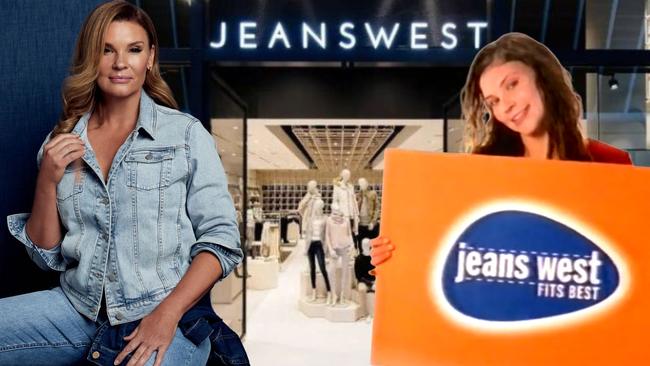
Maxwell was flown across Australia, attending store openings and meeting highfliers.
“They gave me so much creative license over the scripts for commercials,” she said.
“As a model I had spent so many years being told what to be, what to wear, what to eat and how to act, but with Jeanswest they let me be me, in all my daggy, quirky glory.
“I absolutely loved every minute of it.”
The campaign catapulted Maxwell into a lifelong career in media, working as an entertainment reporter for E! News in LA, an announcer for TV music network Channel V and co-host on the X Factor in Australia.
“I really don’t think that anything of this would have been possible without the start that Jeanswest gave me almost three decades ago,” she said.
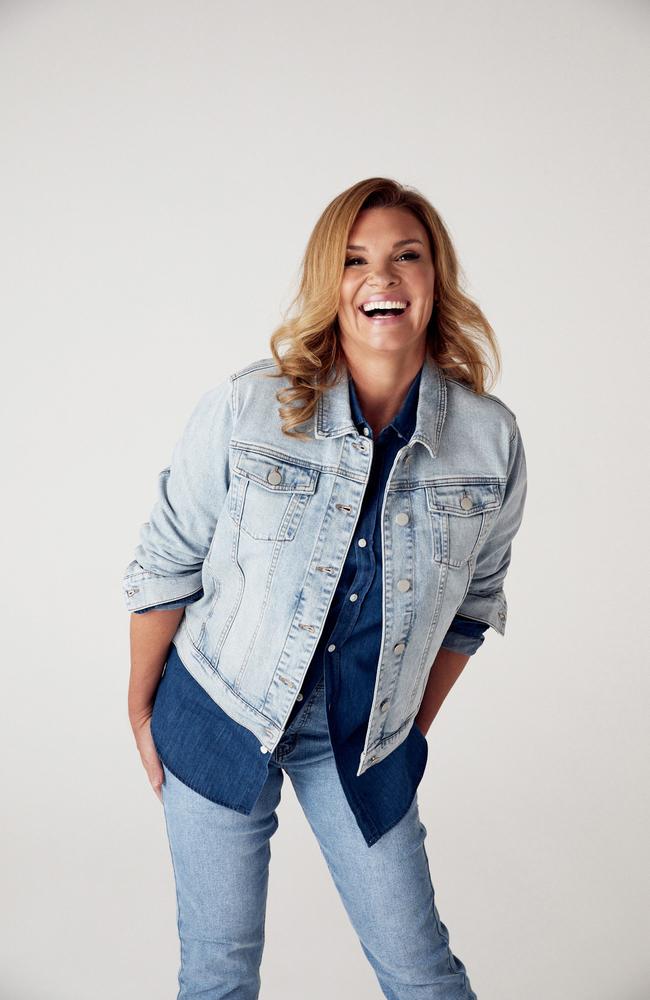
A 53-year history: From Perth to the world
Founded in 1972 in Perth, by the 90s Jeanswest was a household name and a staple feature across the nation’s shopping malls.
With its distinct blue jeans and laid-back style, the brand became synonymous with Australian youth culture and expanded its reach internationally, including in New Zealand, the Middle East and Asia.
But the retailer’s fortunes began to shift in the 2000s.
In what industry experts describe as a “perfect storm,” the brand faced fierce competition from fast-fashion giants and a rapid shift toward online shopping.
These pressures, combined with Jeanswest’s inability to pivot quickly, ultimately led to the brand’s struggle to stay relevant, experts say.
It’s not the only one.
A host of well-known Aussie brands have ended up on the retail scrap heap in recent years, including Mosaic Brands, whose retail stable covered Katies, Noni B, Rivers, Rockmans and Millers, which collapsed last October.
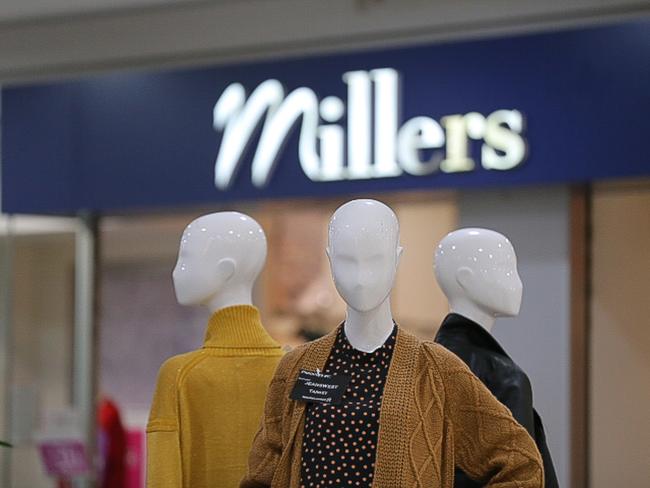
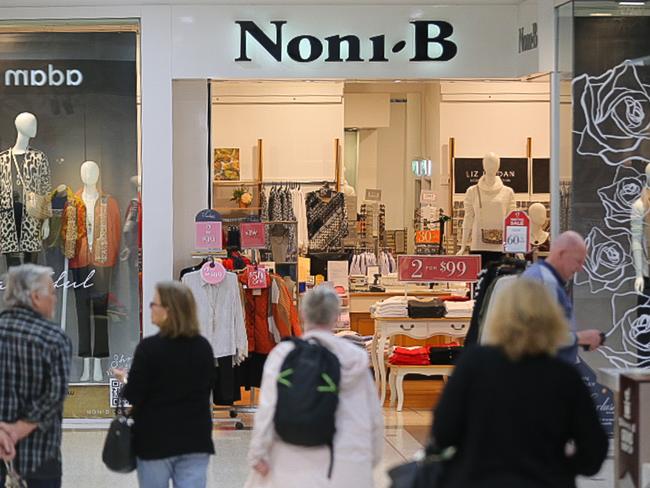
Jeanswest has repeatedly struggled to stay afloat over this time.
The Melbourne-based retailer first collapsed in 2020 but was rescued by Hong Kong’s Harbour Guidance.
It recapitalised the business and closed dozens of stores but was unable to fight the retail tide, putting the brand into administration last week, the second collapse in five years.
This time all stores – including 16 in Victoria – will close in a move which puts a dark cloud over 600 jobs.
Insolvency experts from Pitcher Partners are now managing the business, having launched a fire sale of stock.
It’s hoped the brand will remain as an online business and experts are doubtful it will survive at all.
So what went wrong?

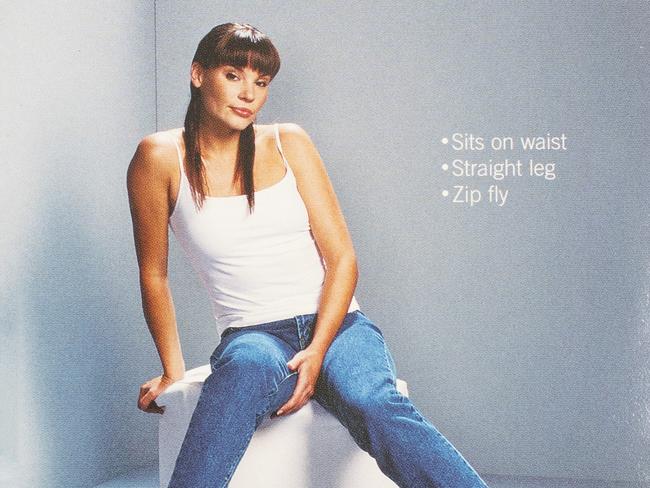
The mid-tier killing zone
Jeanswest operated in one of the most competitive retail segments – mid-tier, mid-price fashion – and simply couldn’t keep up, experts say.
The segment is overrun with competition making it harder to stand out and maintain customer loyalty.
“You only need to walk into a shopping centre today and you’ll find 10 or 15, if not 20 of these similar types of businesses essentially selling the same type of product to the same customer,” Queensland University of Technology marketing and consumer behaviour professor Gary Mortimer said.
“There isn’t a great deal of differentiation between any of them.
“If you look at Just Jeans and Jeanswest, there is no difference between them, and probably even Cotton On.
“So if you want to buy a cheap pair of jeans and a casual T-shirt, there’s a range of choices out there for you.”
In the past 20 years the sector has seen an influx of fast fashion retailers, Mortimer said, including Uniqlo, Zara and H&M, taking a “massive bite” out of the market.
“And then in the last three years we’ve had the emergence of Temu and Shein, taking another bite out of that market,” he said.
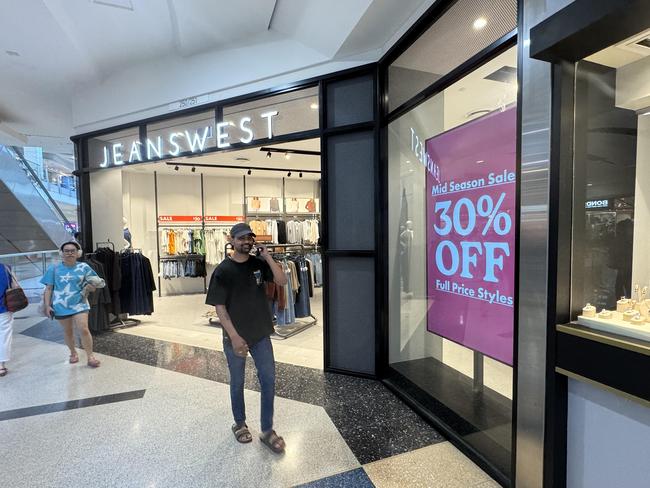
The rise of online shopping
With more than a third of fashion purchases done online, retailers are being forced to invest in e-commerce strategies to remain competitive.
“Certainly the physical retail experience is around social and recreational value,” Mortimer said.
“You go to a shopping centre to have a coffee, meet with friends, maybe go to a movie, grab something to eat, get your car washed and do some shopping.
“But the sheer convenience of shopping online has a lot of people purchasing with a click of a switch.”
Jeanswest won’t be the only retailer to close stores, Mortimer warns.
“Myer and David Jones are going down the path – knowing that 20 per cent or so of revenue comes from online, they may not need 100 stores, they may only need 65,” he said.
This process – and the fire sales they can spark – pose further risks to the sector.
“If we go back to the end of 2018, Roger David made the decision to close all of their stores after nearly 70-odd years,” Mortimer said.
“They slashed and burned all of their inventory to clear out their stores.
“That then had a knock-on effect on Ed Harry, which was another big menswear retailer.
“They were expecting to get big sales throughout the Christmas period but that didn’t materialise because shoppers took advantage of the Roger David’s clearance sales.
“Ed Harry, at the beginning of 2019, then went into receivership and closed all their stores.”
While it’s a win for shoppers snapping up discounted Jeanswest stock, he predicted similar retailers, like Just Jeans or Jay Jays, would suffer as a result.
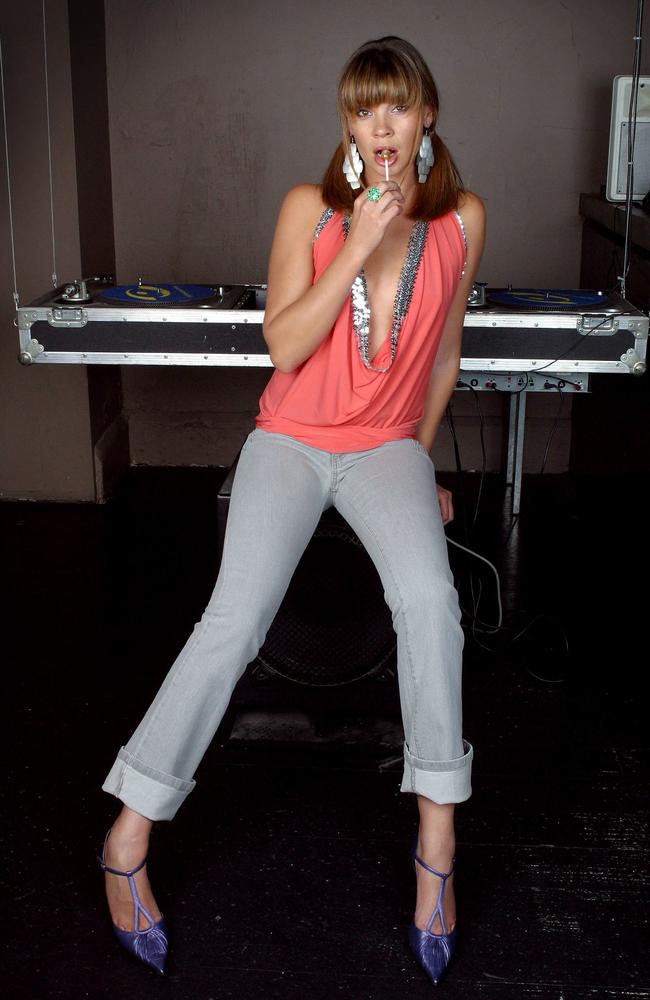
Adapt or die
Retail is going through a “Darwinian adaptation period”, Retail Doctor Group founder Brian Walker said.
“Simply put, the fittest adapt and survive,” he said.
“Every single retail closure is at its core, examples of businesses that simply couldn’t adapt.
“Retail has to be entertaining, relevant, theatrical, tribal, fast, inspiring and magnetic – these brands that fall behind – just as the dinosaurs fell – are simply of another period.”
Walker said at its core, Jeanswest “failed to remain contemporary”.
“It is incorrect to simply blame macroeconomic conditions, or the rise of AI and the internet,” he said.
“Yes they are challenging, but also provide great opportunities.”
Walker said retail was seeing the slow decline of “single model product brands”.
“You’ve got to have differentiated products – if you lose that differentiation on brand experience, building a tribe, unique and innovative product, you’ve got real problems,” he said.
“A pair of jeans is a pair of jeans.
“The focus is all on the product. And under pressure of declining sales and margins, product quality can suffer.”
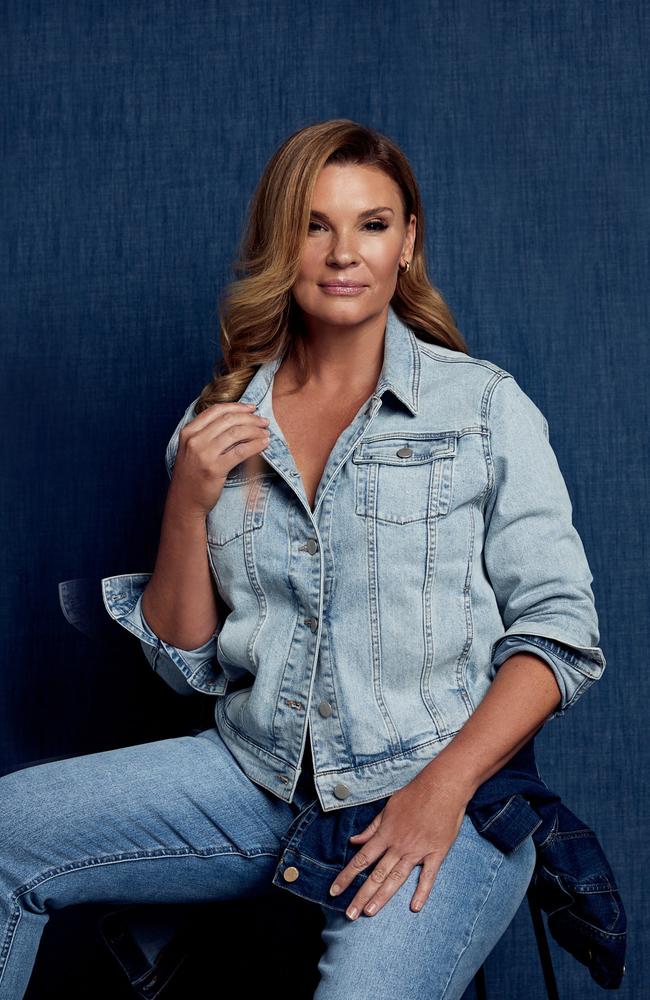
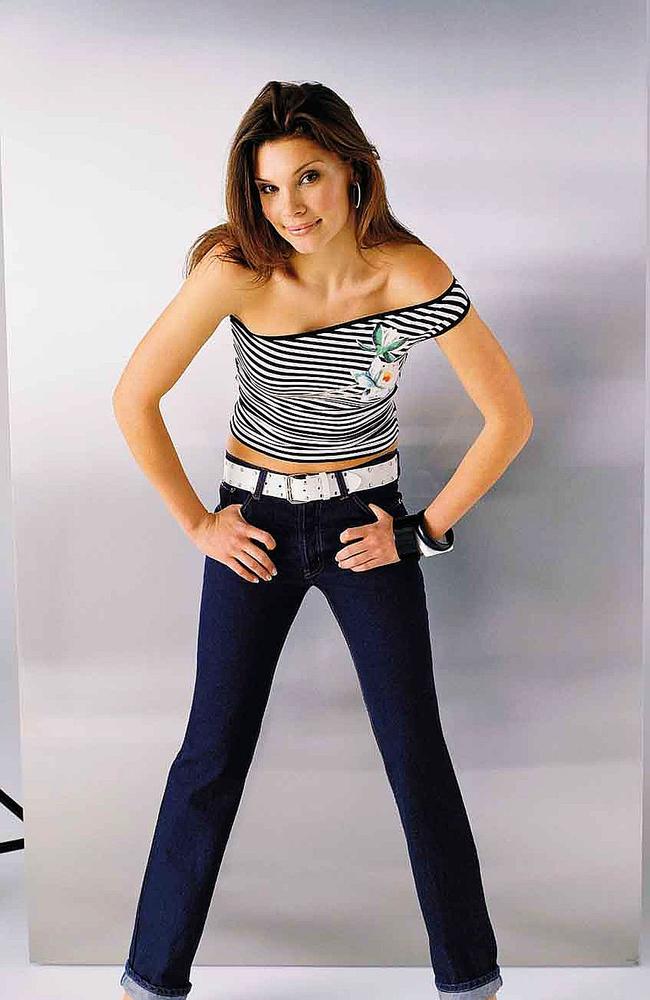
Just not cool anymore
It may have been popular in the 90s, but at its core Jeanswest had lost its appeal and is no longer considered “cool” by today’s shoppers, Walker said.
“I think there’s a generational play at hand,” he said.
“We’ve seen a lot of the businesses that we grew up with as Baby Boomers not enjoy the same brand resonance as the Gen Zs and many others.”
While Jeanswest had a “nostalgic value” for the older generations, Mortimer said the brand had failed to connect with younger customers.
“I think a business that’s been around for 50 odd years … people that grew up in the 80s and the 90s shopped there because it was cool to shop at Jeanswest,” he said.
“Those customers are now in their 50s and 60s. They’re not shopping at that retailer anymore.
“And if you talk to a young consumer, someone that’s 15 to 25, they’re not shopping at Jeanswest.”
Can the brand survive?
Both Mortimer and Walker doubt Jeanswest would survive as an online operation.
“I don’t think the brand is strong enough to uphold an online platform only,” Mortimer said.
The outlook isn’t bright, but Maxwell still has hope that Jeanswest will survive online.
“I think in today’s marketplace that online is the way forward now,” she said.
“If they go online I will still support them. I owe Jeanswest so much of my career. I still wear their jeans and let me tell you, they absolutely do fit best!”
Originally published as What went wrong with Jeanswest




